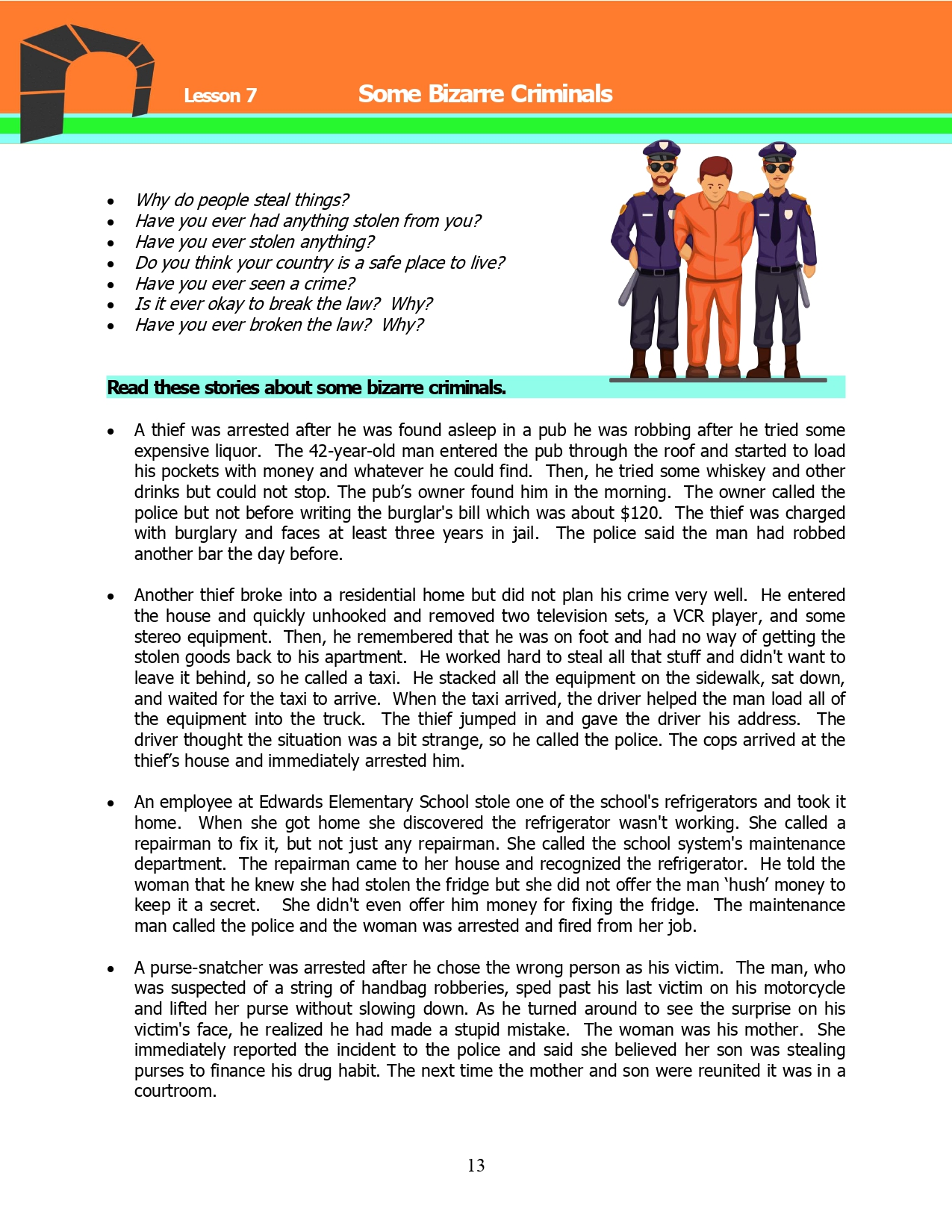This is Lesson 8, “How was your day today?,” from our beginner-level adult ESL book “ESL Pathways: Foundations”. The lesson starts with a short story about “Charles” and his daily routine, followed by a dialogue between Charles and a friend, and comprehension questions. Students then fill in a chart about their daily routines, answer discussion questions, and complete a grammar review. This lesson is available for free download, and you can download many other adult ESL lessons like this one in our book ESL Pathways: Foundations.
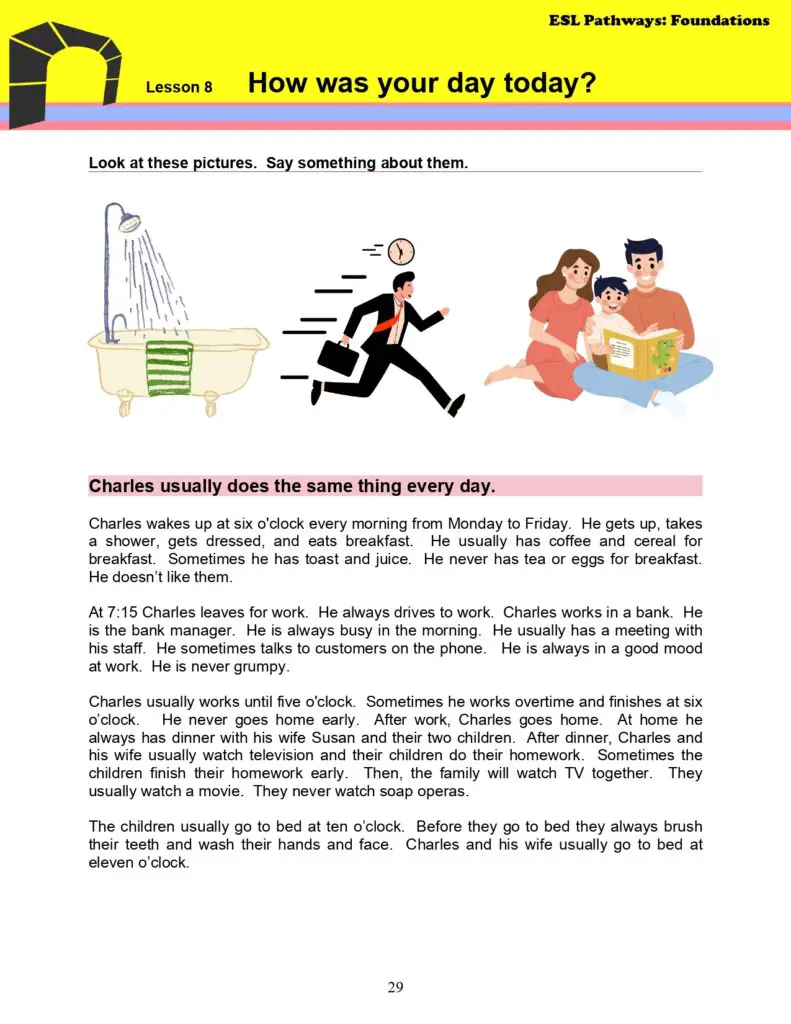
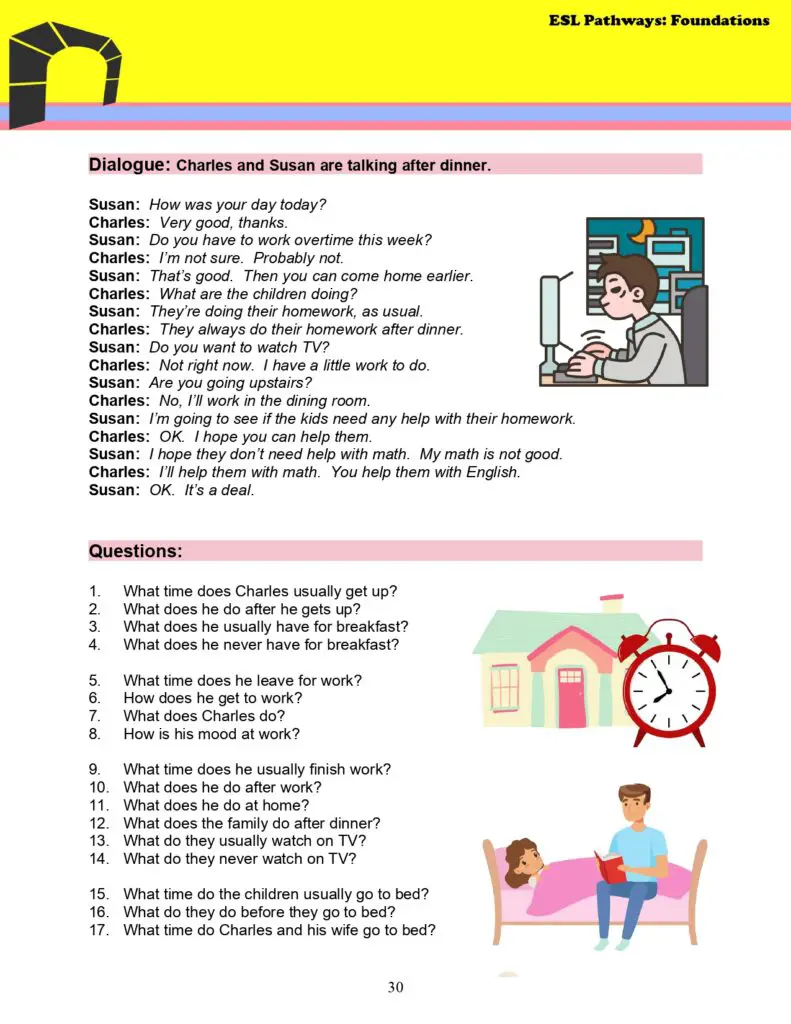
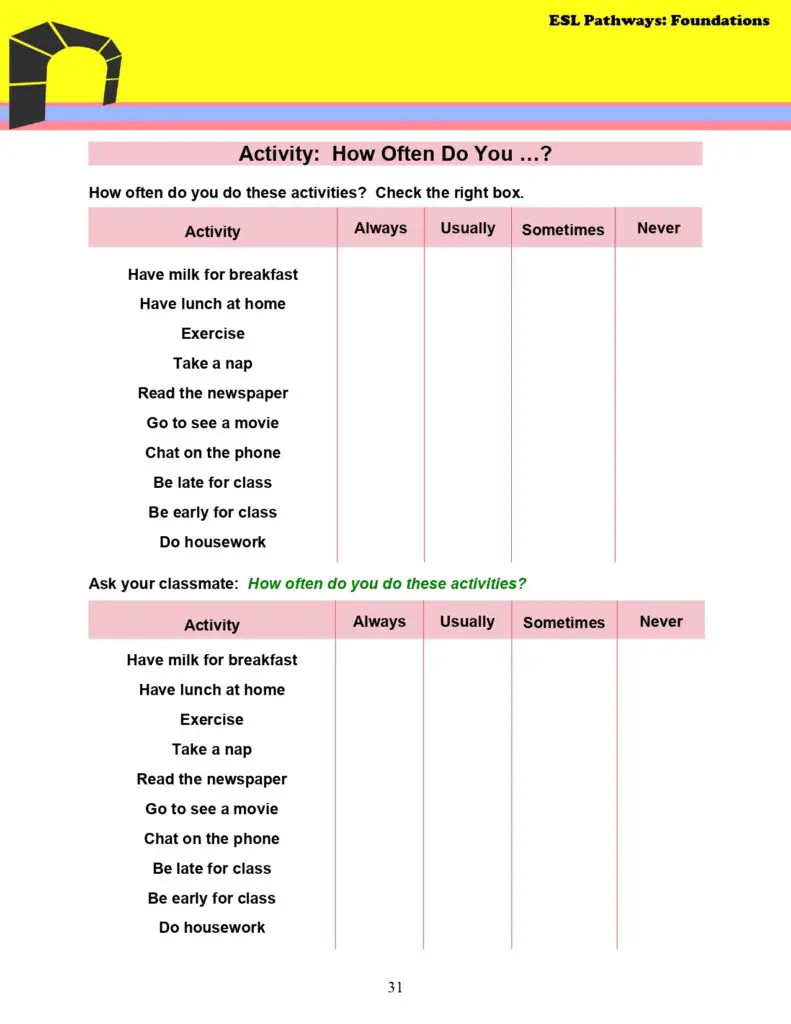
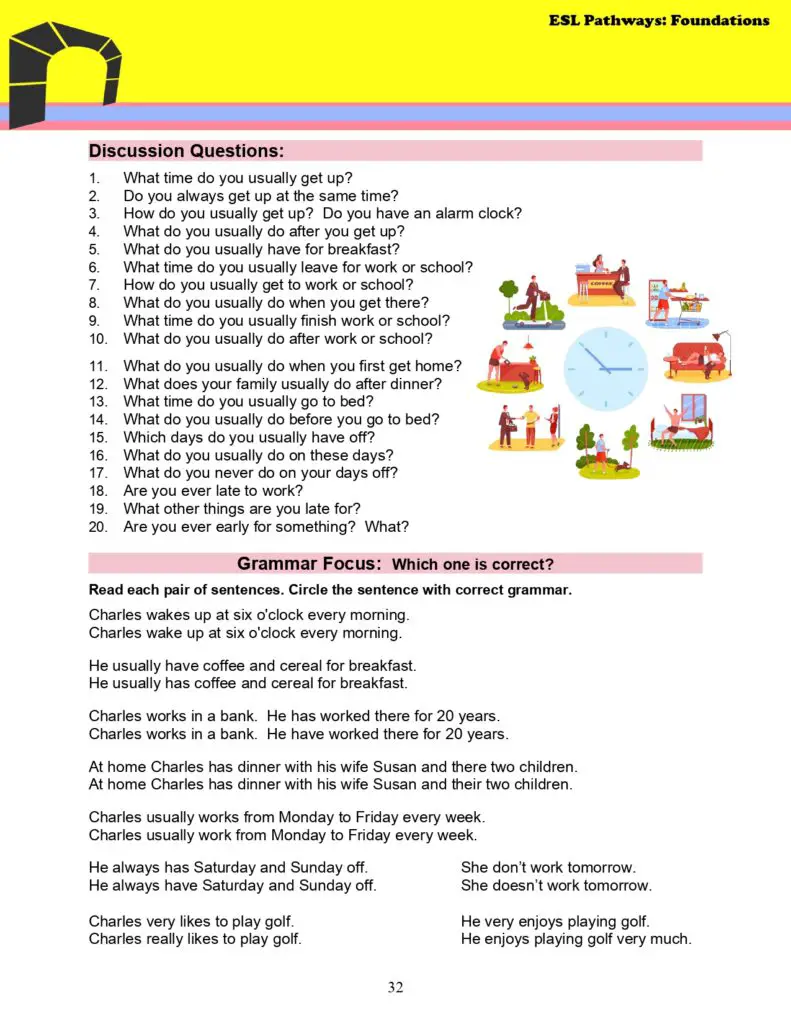
ADULT ESL LESSONS: How was your day today? (Text-Only Version)
Charles usually does the same thing every day.
Charles wakes up at six o’clock every morning from Monday to Friday. He gets up, takes a shower, gets dressed, and eats breakfast. He usually has coffee and cereal for breakfast. Sometimes he has toast and juice. He never has tea or eggs for breakfast. He doesn’t like them.
At 7:15 Charles leaves for work. He always drives to work. Charles works in a bank. He is the bank manager. He is always busy in the morning. He usually has a meeting with his staff. He sometimes talks to customers on the phone. He is always in a good mood at work. He is never grumpy.
Charles usually works until five o’clock. Sometimes he works overtime and finishes at six o’clock. He never goes home early. After work, Charles goes home. At home he always has dinner with his wife Susan and their two children. After dinner, Charles and his wife usually watch television and their children do their homework. Sometimes the children finish their homework early. Then, the family will watch TV together. They usually watch a movie. They never watch soap operas.
The children usually go to bed at ten o’clock. Before they go to bed they always brush their teeth and wash their hands and face. Charles and his wife usually go to bed at eleven o’clock.
Dialogue: Charles and Susan are talking after dinner.
Susan: How was your day today?
Charles: Very good, thanks.
Susan: Do you have to work overtime this week?
Charles: I’m not sure. Probably not.
Susan: That’s good. Then you can come home earlier.
Charles: What are the children doing?
Susan: They’re doing their homework, as usual.
Charles: They always do their homework after dinner.
Susan: Do you want to watch TV?
Charles: Not right now. I have a little work to do.
Susan: Are you going upstairs?
Charles: No, I’ll work in the dining room.
Susan: I’m going to see if the kids need any help with their homework.
Charles: OK. I hope you can help them.
Susan: I hope they don’t need help with math. My math is not good.
Charles: I’ll help them with math. You help them with English.
Susan: OK. It’s a deal.
Questions:
- What time does Charles usually get up?
- What does he do after he gets up?
- What does he usually have for breakfast?
- What does he never have for breakfast?
- What time does he leave for work?
- How does he get to work?
- What does Charles do?
- How is his mood at work?
- What time does he usually finish work?
- What does he do after work?
- What does he do at home?
- What does the family do after dinner?
- What do they usually watch on TV?
- What do they never watch on TV?
- What time do the children usually go to bed?
- What do they do before they go to bed?
- What time do Charles and his wife go to bed?
Discussion Questions:
- What time do you usually get up?
- Do you always get up at the same time?
- How do you usually get up? Do you have an alarm clock?
- What do you usually do after you get up?
- What do you usually have for breakfast?
- What time do you usually leave for work or school?
- How do you usually get to work or school?
- What do you usually do when you get there?
- What time do you usually finish work or school?
- What do you usually do after work or school?
- What do you usually do when you first get home?
- What does your family usually do after dinner?
- What time do you usually go to bed?
- What do you usually do before you go to bed?
- Which days do you usually have off?
- What do you usually do on these days?
- What do you never do on your days off?
- Are you ever late to work?
- What other things are you late for?
- Are you ever early for something? What?
Grammar Focus: Which one is correct?
Read each pair of sentences. Circle the sentence with correct grammar.
Charles wakes up at six o’clock every morning.
Charles wake up at six o’clock every morning.
He usually have coffee and cereal for breakfast.
He usually has coffee and cereal for breakfast.
Charles works in a bank. He has worked there for 20 years.
Charles works in a bank. He have worked there for 20 years.
At home Charles has dinner with his wife Susan and there two children.
At home Charles has dinner with his wife Susan and their two children.
Charles usually works from Monday to Friday every week.
Charles usually work from Monday to Friday every week.
He always has Saturday and Sunday off. She don’t work tomorrow.
He always have Saturday and Sunday off. She doesn’t work tomorrow.
Charles very likes to play golf. He very enjoys playing golf.
Charles really likes to play golf. He enjoys playing golf very much.



